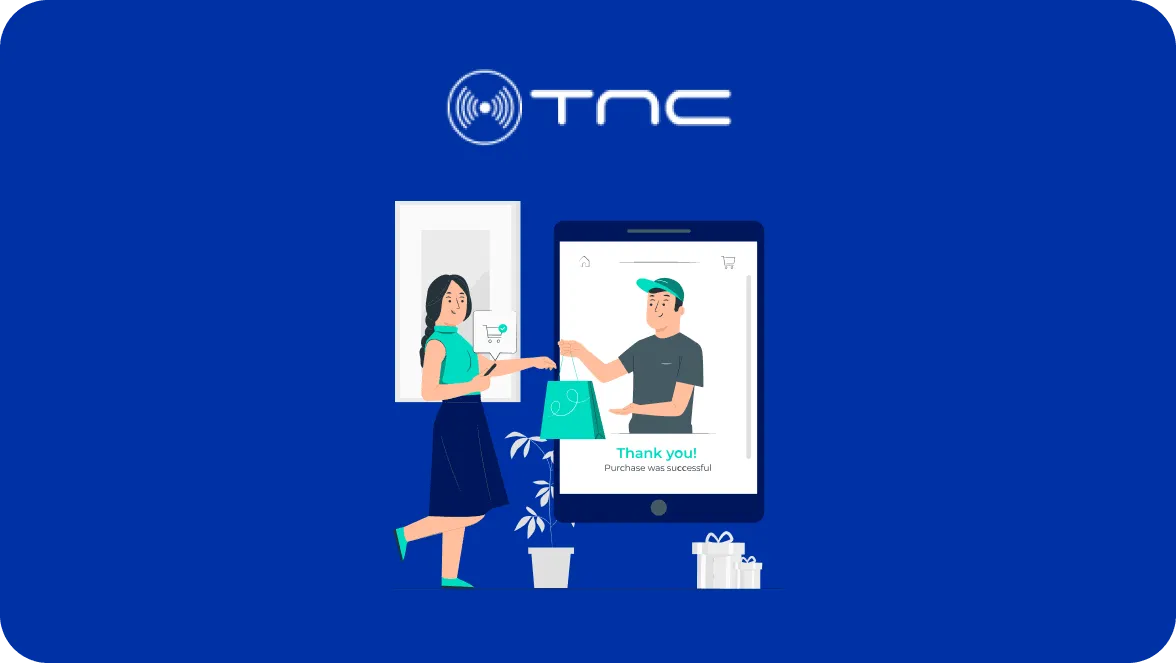
In this article, I focus on the best e-commerce platforms for building your online store. These platforms represent the top performance data, customization capacities, marketing features, multichannel functionality, and SEO promotion — everything that is crucial for your outstanding e-commerce store. Let's compare the most popular SaaS cloud solutions, Shopify and BigCommerce, and two open-source solutions, WooCommerce and Magento 2.
Key features of e-commerce platforms
To help you decide which platform suits you best, I’ve collected all the necessary criteria by which platforms can be evaluated. After reading such a comprehensive analysis of key features of e-commerce platforms, you’ll be able to determine which solution is more appropriate for your business.
Website load
Load time is crucial for an e-commerce online store as consumers stay away from slow websites. E-commerce platforms differ in loading speed:

Important note — WooCommerce and Magento should be installed on the store owners' own servers. Thus, the speed indicator can change with increasing resources, which in turn will entail additional costs. In this respect, Shopify and BigCommerce are more reasonable, as they are cloud platforms and this type of cost is included in the tariff plan.
Servers and infrastructure
In this paragraph, I will compare a few indicators: installation, number of topics, tariff plans.
Installation and setup They are free on Shopify and BigСommerce platforms. Both platforms have a 14-day free trial, so you can create your store, add products, and fill the site with content. The only limitation is that you can’t make real payments, only test transactions.
Store themes Shopify e-commerce website has 9 free store themes, while BigCommerce has 12. Both platforms only charge you for “maintenance” of your website — a monthly fee that varies depending on the plan you're interested in.
Tariff plans Shopify has 5 pricing plans, while BigСommerce has 4 tariff options. The BigCommerce solution is 1$ more expensive. Also, tariff plans differ only in the set of functionality and the amount of commission from each purchase, which is almost the same.
Magento and WooCommerce should be installed on the store owner’s servers. This entails additional costs for website development and deploying the right infrastructure. Moreover, you will need constant support from a DevOps specialist. This specialist will maintain the site, monitor the load level, and, if necessary, make additional settings if the traffic to the website increases.
Thus, Magento and WooCommerce e-commerce websites will cost you more, but you can benefit from them a lot. The control over the application is completely carried out by the development team and any additions, integrations, and changes can be made without any difficulties.
If you are a startup looking to quickly enter the market and start selling items — Shopify or BigCommerce is the obvious choice for you. Meanwhile, mature businesses with their own IT departments can choose Magento or WooCommerce approaches.
Range of plugins
Shopify, Magento, and WooCommerce have plenty of paid and free plugins. These platforms have been on the market for a long time, that’s why the majority of services have already created plugins for each platform, unlike BigCommerce. It’s a young platform that has about 930 integrations. Still, the main integrations of large companies such as Yotpo, TrustPilot exist for all 4 solutions.
Complexity of plugin usage
Shopify and BigCommerce’s plugins can be easily downloaded from App Store and installed. Plugin installation is intuitive. Moreover, plugins have extensive documentation and forums.
The situation is different with installing Magento and WooCommerce plugins. It’s rather time-consuming — you’ll have to sort out the installation and configuration process and read all instructions. What’s more important, it’s not always possible to complete it by yourself and there you will need IT specialist support.
Also, specific plugins can be developed for each platform as well, but in this case, you should hire a software developer.
Developers community
Here I’ve collected some statistics about market shares of the platforms named above and the number of domains:

WooCommerce, Shopify, Magento platforms have a very large community. It means that you can easily find how to work with the platform, make customizations and improvements.
The exception is Magento 2 — the community is large, but as statistics show, migration from Magento 1 to Magento 2 is very slow. This is due to the cost of resources required to migrate from the old to the new platform. At the moment there is a lack of necessary information for the new version.
As for BigCommerce, this platform is young and gaining momentum. The community is already large enough to find answers quickly.
Payment plugin
BigCommerce doesn’t charge transaction fees for credit cards. The only commission is for using PayPal. The fee varies from 2.5% to 2.9% depending on the plan. You can find more info about transaction fees here.
As for Shopify, this platform charges the following fees if you use Shopify Payments:

The commission for using other payment providers varies from 0.5% to 2%.
On the other hand, WooCommerce and Magento allow you to develop your own payment modules. It can help you avoid paying commissions for using a third-party payment provider. But most of the online stores are already activating existing integrations and paying commission for using a payment system just like Shopify and BigCommerce. These services provide the most secure and popular payment methods.
Delivery plugin
Each platform has integrations with the most popular shipping platforms. Also, you can customize shipping costs to different regions.
Stock-tracking
Each platform has a built-in tracking system in the Admin panel. Unlike other platforms, Shopify allows you to store products in its warehouses (for a certain range of countries) or you can use your own warehouses.
Also, each platform allows you to specify the current number of items you currently have in stock. After each purchase, the ordered products will be deducted from the total number by the platform. You can also set up sales, even if your product has run out, or do without tracking these items at all.
All platforms support multiple warehouse and multi-location, the only exception is BigCommerce. It provides this service only by using third-party plugins.
Support service
Shopify provides 24/7 support and appoints a personal manager if you use the most expensive tariff plan. Otherwise, three support options are available — mail, live chat, and phone. Shopify refers to a forum where they can help you with your issue. As for a chat or phone — you just can't find them on a hunch.
In a BigCommerce e-commerce website, everything is intuitive — the “Help” button is prominently displayed. The only limitation is that you need to remember your PIN. Without a PIN you can’t write, call, or chat to support.

Unfortunately, that is not the case with Magento and WooCommerce. There is no way to write to support, but there is an opportunity to create an issue with the attached description. On the platforms’ websites there are many issues already created with a description of the solution.
SEO optimization
Shopify and BigCommerce platforms have a pretty intuitive interface for changing titles, descriptions, but there are some restrictions in optimizing URLs. Redirects are also customizable and easy to set up. Both platforms provide SSL certificates for your website. Moreover, Shopify and BigCommerce have a variety of plugins that enable additional SEO customization.
BigCommerce is slightly ahead in this race as it has one distinctive feature — the links can be made shorter and more readable.
As for WooCommerce and Magento, these platforms have much more SEO capabilities than Shopify and BigCommerce. It is possible to customize the URL in the required way and add additional meta tags. There are also additional plugins that will allow you to make basic SEO configurations yourself.
Website customization option
The above-mentioned best e-commerce solutions have a set of free and paid themes that can be customized. Content management is quite simple in each of the platforms, everything is intuitive. You can also develop your own theme from scratch. Content and theme management looks more modern in Shopify and BigCommerce, but this is a matter of taste.
Sales channels
All top e-commerce platforms contain integrations with popular sales channels and have many plugins to optimize the work with them.
Software delivery time
Time to market using Shopify and BigCommerce is short. You can do all necessary setups within one day: create an account and store, select or buy a theme, fill in the content, set up shipping and payment methods, buy a domain — well done, your website is ready to launch!
In the case of Magento and WooCommerce, it takes much more time. Firstly, you need to deploy store infrastructure, hire developers to configure the server and activate the domain, configure and connect certificates. These preparation steps alone can take up to three days. Then you will need to follow the same steps as described for Shopify and BigCommerce.
Concluding, Shopify and BigCommerce, which are cloud-based solutions, have a big advantage in terms of time to market.
Data security
Both platforms, BigCommerce and Shopify, control the protection of your data. You’re able to link your account to a phone number and enable a two-step verification to protect your account. If someone is logged in from an unknown device, you will be informed by letter and, if necessary, access to your account will be blocked until clarification. All user data is stored on cloud servers and encrypted as the platforms claim.
WooCommerce and Magento 2 have basic settings, but most of the necessary ones should be implemented by a DevOps specialist when configuring the server. It means you need a specialist to configure database encryption, activate SSL certificates, make sure that the database is on a private network, and set up many other additional settings.
Still, it can be a strong advantage of Magento 2 and WooCommerce, as all settings are created individually to meet your specific business needs and can be expanded at any time. In contrast, in cloud solutions like Shopify and BigCommerce, there is no way to make additional security settings if you ever need them.
API
All platforms have an Application Programming Interface (API). Except for WooCommerce, all of them have a GraphQL API, which enables a more flexible configuration of requests and helps to receive only the data you need.
All of them can develop a third-party Storefront application using REST API and manage admin data, orders, products, and users.
In my opinion, the Shopify API has more benefits as it is described in detail and easy to understand compared with others. It is not to mention that Shopify has a large community that helps to resolve issues quite fast.
How much do e-commerce platforms cost?
Price per month, $
BigCommerce offers 4 pricing plans:
BigCommerce Standard: $29.95 per month
BigCommerce Plus: $79.95 per month
BigCommerce Pro: $299.95 per month
BigCommerce Enterprise: depends on requirements
A 15-day free trial is also available. You can check out this offer here.
Shopify offers 5 pricing plans:
Lite: $9 per month
Basic Shopify: $29 per month
Shopify: $79 per month
Advanced Shopify: $299 per month
Shopify Plus: pricing varies depending on requirements
Shopify also offers a free trial, which lasts for 14 days. You can access the free trial here.
Comparing theme prices, BigCommerce themes are more expensive than Shopify — the average price is $250-300 compared to the standard $180.
Choosing WooCommerce and Magento 2, the server configuration and the server itself should be paid for. Moreover, you need to hire an engineer who will develop your online store, configure and connect the database and support you along the way as some difficulties may arise with increasing traffic. WooCommerce hosting costs start at $7. You can check the approximate cost here. Speaking about the Magento e-commerce website, hosting costs start at $9, and you can find prices on this website.
As a result, Shopify and BigCommerce outperform Magento and WooCommerce since you don’t pay for installation on the server and for setting up the infrastructure. Usually, these costs alone exceed an annual subscription to Shopify or BigCommerce.
Compare the best e-commerce website platforms
Just to make it short and clear, I’ve compiled all the above information into one table. Here you can visually compare e-commerce platforms.

How do you choose the best one?
Choosing the best platform for an e-commerce website is really important for your business as it automates manual work and frees up your time that you can spend on other business aspects.
After such a detailed analysis, it becomes obvious that Shopify is a front-runner, as this platform can be adapted to your specific e-commerce needs and business model. Shopify is in the lead by most metrics:

Building a Shopify store is easy thanks to the extensive documentation and intuitive interface. Since it is a cloud-based solution, there is no need to hire engineers to support the application and to worry about data security. If you need specific functionality in Shopify, it can be extended by plugins. You can also develop your theme if you can't find a suitable one.
Moreover, by choosing Shopify, you have the opportunity to develop a headless commerce solution. With a headless approach, you can create, change content, and design without hurdles, as there is no need anymore to add code to the back-end part of the website or hire engineers.
Your online business benefits from the following:
IT development costs are reduced
your marketing team can implement changes faster
the business is not limited by the capacities of the website
Thus, it’s possible to keep up with consumers and retail trends instantly and go to the market with new ideas, products and campaigns faster than competitors.
Despite all the Shopify advantages, the first thing you should pay attention to is your business needs and how Shopify will help you to solve them.
On the other hand, if you have specific business requests for which all-in-one solutions don’t have the right functionality, then you will need to create new plugins. In this way, it is better to choose a custom solution that allows you to implement any functionality without restrictions since the development is carried out from scratch and you have access to the code. It’s a good choice if you have resources to hire engineers.
If you are interested in e-commerce development or want to discuss your specific business case and find out how to grow your e-commerce business, drop us a message by filling the online form or chat with our representative on a chatbot. Our team of engineers will be happy to dive into your project and work out a software development strategy aligned with your business needs!


































Was this helpful?
0
No comments yet